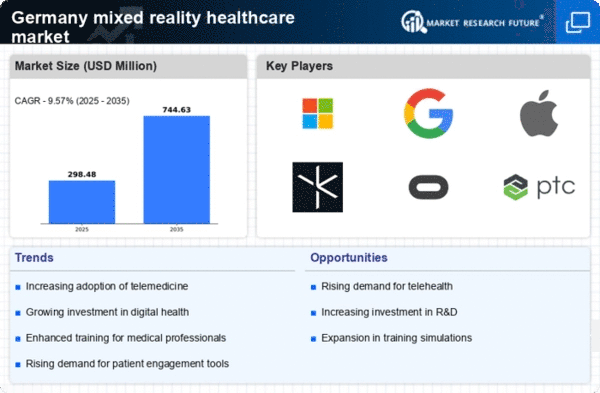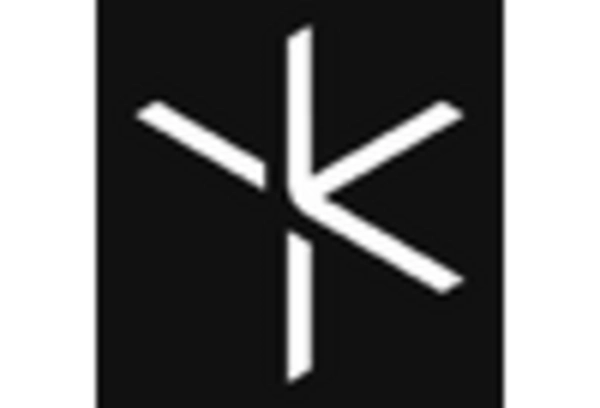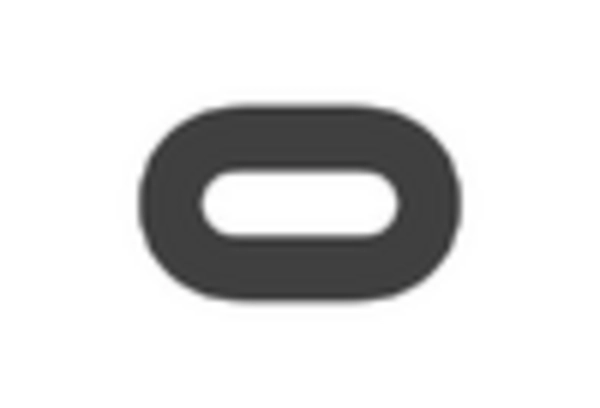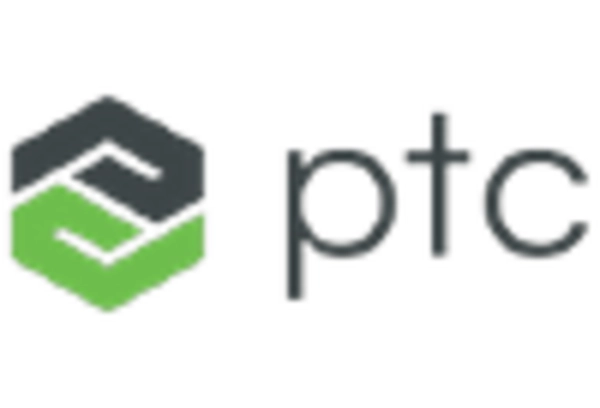Government Initiatives and Funding
Government initiatives play a crucial role in the development of the mixed reality-healthcare market in Germany. The German government has been actively promoting digital health solutions through various funding programs and incentives. In 2025, the government allocated approximately €200 million to support research and development in digital health technologies, including mixed reality applications. This funding is aimed at fostering innovation and encouraging collaboration between healthcare providers and technology developers. Additionally, regulatory frameworks are being established to ensure the safe and effective implementation of mixed reality solutions in clinical settings, which is likely to enhance market growth and adoption rates.
Rising Focus on Patient-Centric Care
There is a notable shift towards patient-centric care within the mixed reality-healthcare market in Germany. Healthcare providers are increasingly recognizing the importance of involving patients in their treatment processes. Mixed reality technologies offer innovative ways to engage patients, allowing them to visualize their conditions and treatment options. This approach not only enhances understanding but also fosters a sense of empowerment among patients. As a result, healthcare institutions are investing in mixed reality tools to improve patient education and satisfaction. Market data suggests that patient engagement solutions are projected to grow by 25% annually, reflecting the increasing emphasis on personalized healthcare experiences.
Technological Advancements in Medical Devices
The mixed reality-healthcare market in Germany is experiencing a surge due to rapid technological advancements in medical devices. Innovations such as augmented reality (AR) and virtual reality (VR) are being integrated into surgical instruments and diagnostic tools, enhancing precision and efficiency. For instance, the market for AR in healthcare is projected to grow at a CAGR of 30% from 2025 to 2030. This growth is driven by the increasing demand for minimally invasive procedures, which require advanced visualization techniques. Furthermore, the integration of mixed reality technologies into training programs for medical professionals is expected to improve skill acquisition and retention, thereby elevating the overall quality of healthcare services in Germany.
Growing Demand for Remote Healthcare Solutions
The increasing demand for remote healthcare solutions is significantly impacting the mixed reality-healthcare market in Germany. As healthcare providers seek to improve access to care, mixed reality technologies are being utilized to facilitate remote consultations and virtual therapies. This trend is particularly relevant in rural areas where access to specialized medical services is limited. According to recent data, the use of telemedicine in Germany has risen by 40% in the past year, indicating a shift towards more flexible healthcare delivery models. The integration of mixed reality into these solutions is expected to enhance patient experiences and outcomes, thereby driving further adoption in the market.
Collaboration Between Healthcare and Technology Sectors
Collaboration between the healthcare and technology sectors is emerging as a key driver for the mixed reality-healthcare market in Germany. Partnerships between hospitals, universities, and tech companies are fostering the development of innovative mixed reality applications tailored to specific healthcare needs. These collaborations are essential for creating solutions that address real-world challenges faced by healthcare providers. For instance, joint ventures are focusing on developing training simulations for medical professionals, which are expected to enhance skill development and reduce training costs. The synergy between these sectors is likely to accelerate the adoption of mixed reality technologies, ultimately transforming healthcare delivery in Germany.
















